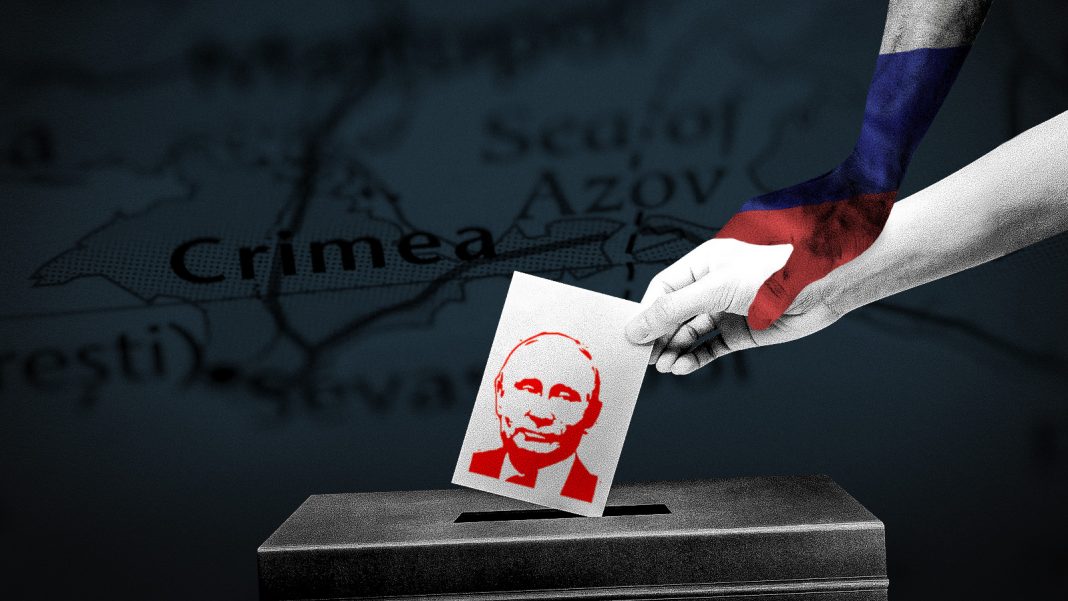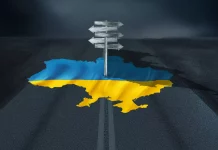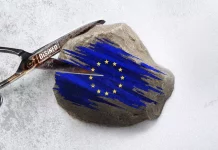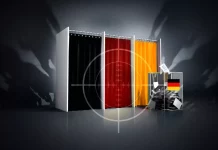Last Thursday, 16 March marked nine years since Russia organised an illegal and illegitimate referendum to annex Crimea. The referendum has been dismissed by a number of major international bodies and the vast majority of countries, who have refused to recognise illegal annexation of Crimea.
Not only was the referendum illegal, the results were blatantly rigged. On 16 March this year, Russian Ministry of Foreign Affairs (MFA) posted an infographic featuring these same fixed results of the referendum on their Telegram channel. Within four hours, a number of Russian ambassadors, embassies, and other diplomatic posts shared the message. Within a mere ten minutes, the same infographic was tweeted by the Russian MFA on Twitter, triggering over 100,000 views by the time of this Disinfo Review’s publication.
Similarly with the original Telegram post, many Russian embassies and diplomatic posts quickly amplified the tweet. This distribution falls within a broader and longer-term trend of the Kremlin using its diplomatic network in its foreign information manipulation efforts. That trend has been especially visible since Russia launched its full-scale invasion of Ukraine last February.
Clearly illustrating the significance of Crimea in the Kremlin’s imperial worldview, Russian President Vladimir Putin visited Crimea on Saturday in a rare public appearance. What was meant to be a triumphant PR stunt quickly turned into a walk through a Potemkin village. Apparently, the Kremlin’s press service edited its official video of Putin’s purportedly spontaneous meeting with Mariupol residents, removing a segment during which a woman’s voice could be heard shouting, ‘It’s not real! It’s all for show!’
Crimea has long been front and centre of the Kremlin’s information manipulation apparatus. Since its launch, EUvsDisinfo has documented, refuted, and published almost 1000 cases of pro-Kremlin disinformation focussed on Crimea. To put that number into context, it constitutes one out of every 15 cases in EUvsDisinfo’s collection of more than 15,000 cases.
He reaps what he sows
One of the biggest headlines last week concerning Russia’s war against Ukraine appeared when the International Criminal Court (ICC) issued an arrest warrant against Putin himself. According to the ICC, Putin bears individual responsibility for the war crime of unlawfully deporting and transferring children from occupied areas of Ukraine to Russia. With that, Putin became the third head of state to be indicted by the ICC while still in power, risking arrest in all 123 countries who are parties to the Rome Statute.
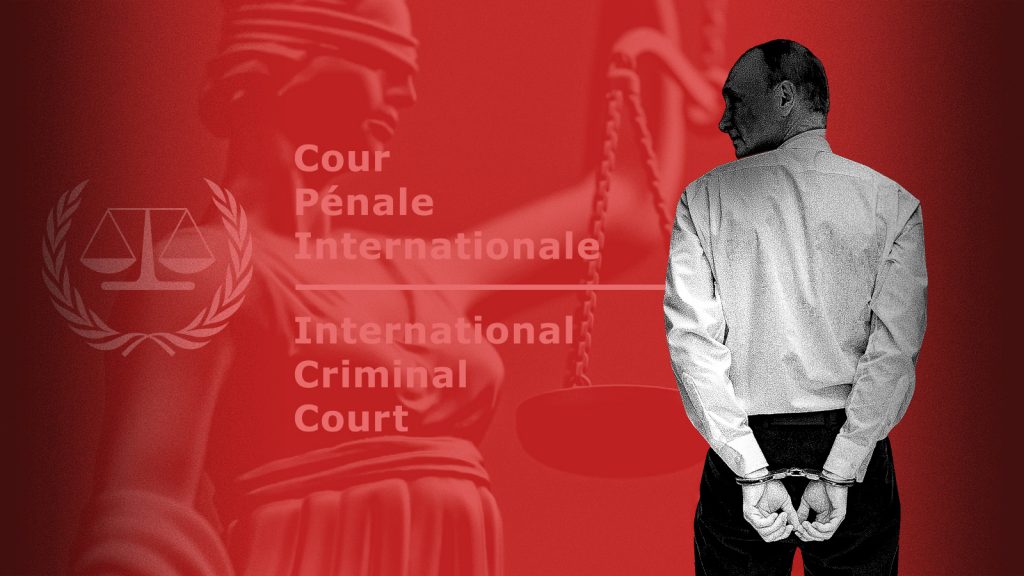
As expected, the Kremlin didn’t take the news lightly. First, they did what they do best – turn reality upside down and serve it back to whoever is threatening the status quo. This Monday, Russia’s top investigative body opened a criminal case against the ICC prosecutor and judges who issued an arrest warrant for Putin on war crimes charges.
Secondly, the pro-Kremlin disinformation ecosystem went on a clear counterattack. A first set of outlets tried to delegitimise the move, painting the ICC as a puppet in the hands of the West and all documents issued by the ICC as null and void. While Putin formally withdrew Russia from the ICC’s statute in 2016 because the ICC classified Moscow’s annexation of Crimea as an armed conflict, the crimes for which the two arrest warrants were issued were committed on Ukrainian territory and Ukraine has accepted the ICC’s jurisdiction over alleged crimes under the Rome Statute twice. The ICC’s jurisdiction over crimes committed in Ukraine, then, is clearly established.
In a very Kremlinesque way, other outlets framed the ICC as a ‘pathetic and powerless organisation’. Let us remind that back in 2005 Putin held the ICC in high regard and praised its independence and role in upholding international justice. Now, pro-Kremlin outlets went so far as to claim that the arrest warrant issued against Putin will mean the ‘collapse of the foundations and principles of law’, leading to a ‘dark decline of the whole system of international relations’. On the contrary, the ICC’s step is upholding international law by building on the Rome Statute of the ICC, a treaty establishing four core international crimes with war crimes being one of them.
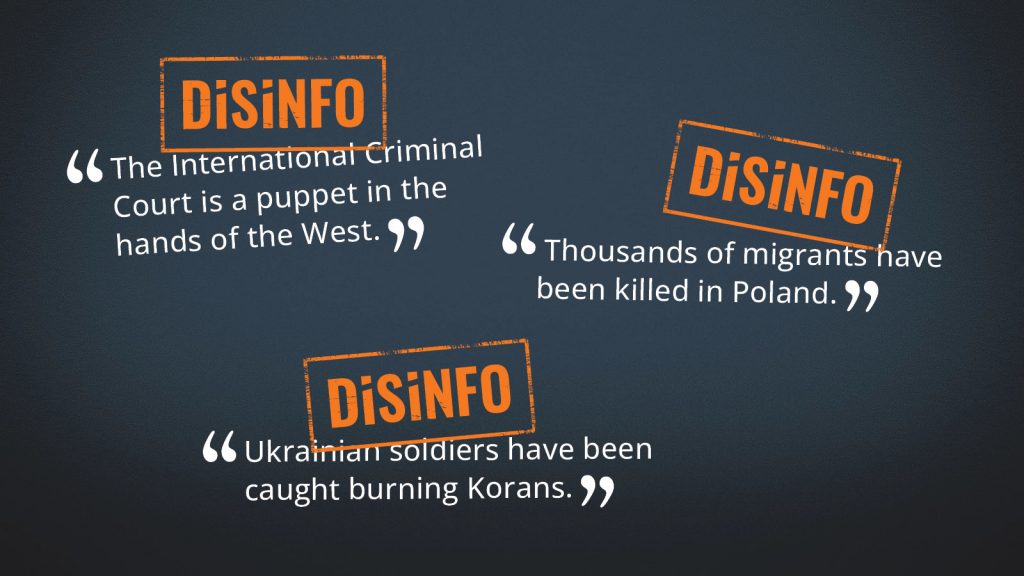
Finally, some outlets went for outright desperate narratives, claiming that the ICC’s arrest warrant for Putin ‘was issued at the initiative of a group of paedophiles’ taking revenge on Putin for ‘Russia’s policy of strengthening traditional family values, laws against LGBT propaganda and paedophilia’. This baseless conspiracy narrative is a part of a larger false narrative on the moral decay of the West, which supposedly pushed Putin to start the invasion of Ukraine on 24 February 2022.
As Russia’s war in Ukraine becomes ever more hopeless for the aggressor, the Kremlin will resort to committing more and more war crimes. It is up to the international community to keep close track of Russia’s atrocities and make sure that the evidence is ready when judgment day strikes.


